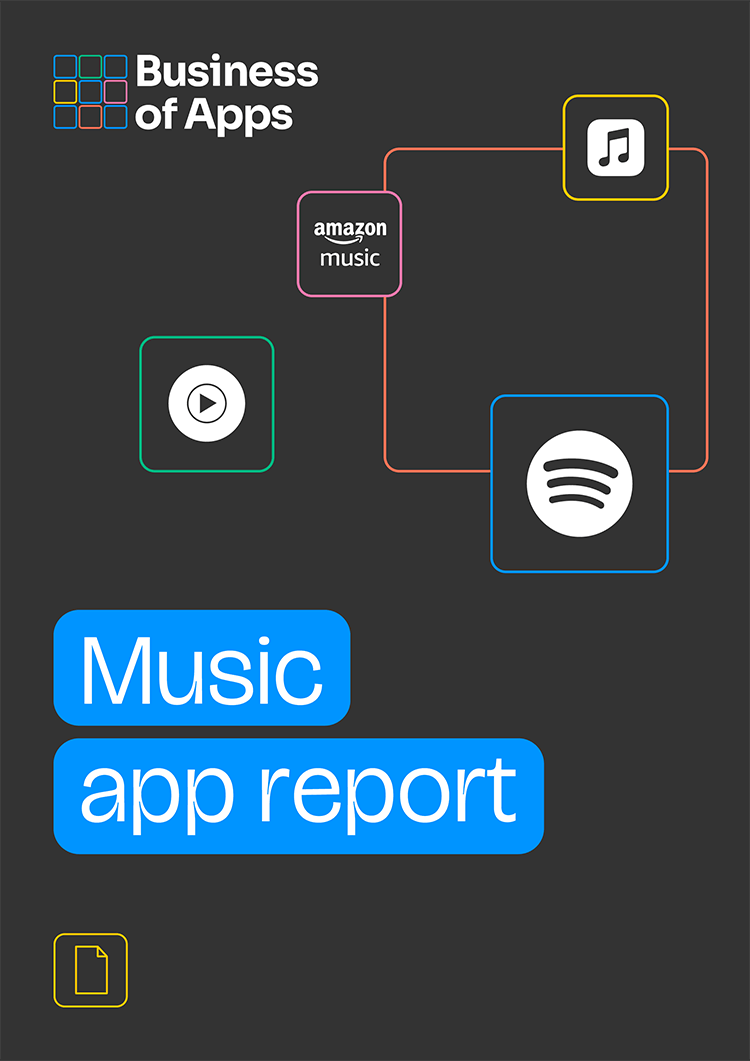Music streaming service Amazon Prime Music started life as Amazon MP3, an iTunes-like digital distributor of MP3 downloads. Amazon was the first digital operator to offer music without digital rights management (DRM) and watermarks, a big accomplishment at the time as many publishers were still opposed to digital in all forms.
When it launched its music streaming service in the early 2010s, it offered the streaming service to Prime users at no additional cost. For non-Prime subscribers, they would have to sign up to Prime Unlimited to get full access. It has since launched Music HD, a lossless quality option for audiophiles, similar to Tidal’s premium option.
Amazon, like Spotify and YouTube, also has an ad-supported option for users that do not wish to pay. It has started pushing this option more heavily in recent years, as it has ramped up its advertising services across all Amazon products.
Your playbook for the new app ecosystem [webinar]
The app stores have been cracked open. Savvy teams are already capitalizing by implementing App2Web and Web2App strategies. Join Paddle’s Lucas Lovell to discover smarter billing tactics.
Register nowLike Spotify, Amazon also offers playlists and podcasts on its app. It has not spent anywhere near as much as Spotify to draw in podcasters, but still has a large library available.
It also recently announced users can access one free audiobook per month, a better deal than Spotify’s free 15 hours of audiobook listening time per month. A surprising move, given Amazon operates Audible, the most popular audiobook platform.
We have collected data and statistics on Amazon Prime Music. Read on below to find out more. Looking for in-depth information? Check out our music app report.
Amazon Prime Music Key Statistics
- Amazon Prime Music generated a little over $4 billion in 2023
- In 2023, Prime Music reached 80 million users
- Prime Music was downloaded over 35 million times in 2023
Music App Report 2025
Want to learn more about the music app industry? In our Music App Report, we cover financials, usage, downloads and demographics by app and industry, alongside market share, engagement, and benchmarks.
Amazon Prime Music Overview
| Title | Title 2 |
|---|---|
| Launch date | September 2007 |
| HQ | Seattle, Washington |
| People | Ryan Redington (GM, Amazon Music), Andy Jassy (CEO, Amazon) |
| Business type | Subsidiary |
| Industry | Music streaming |
Amazon Prime Music Revenue
Amazon made an estimated $4 billion from Prime Music in 2023, a 7.9% increase on the year prior.
Amazon Prime Music revenue 2018 to 2023 ($bn)
| Year | Revenue ($bn) |
|---|---|
| 2018 | 0.34 |
| 2019 | 0.89 |
| 2020 | 1.55 |
| 2021 | 1.89 |
| 2022 | 2.75 |
| 2023 | 3.33 |
| 2024 | 3.86 |
Sources: Music App Report, Company data
Amazon Prime Music Users
Amazon Prime Music has 80 million users and subscribers, the majority of which access it through their Prime subscription.
Amazon Prime Music users 2018 to 2023 (mm)
| Year | Users (mm) |
|---|---|
| 2018 | 16 |
| 2019 | 32 |
| 2020 | 55 |
| 2021 | 63 |
| 2022 | 68 |
| 2023 | 70 |
| 2024 | 75 |
Sources: Music App Report, Company data
Amazon Prime Music Downloads
Amazon has maintained a steady flow of downloads to Prime Music over the past five years.
Amazon Prime Music downloads 2017 to 2023 (mm)
| Year | Downloads (mm) |
|---|---|
| 2017 | 15.9 |
| 2018 | 26.9 |
| 2019 | 32.6 |
| 2020 | 47.3 |
| 2021 | 38.1 |
| 2022 | 42.4 |
| 2023 | 37.6 |
| 2024 | 27.1 |
Sources: Appfigures, AppMagic
Prime Music vs Competitors: Subscribers
Amazon Prime Music is in the mix for second place in terms of total subscribers, along with Apple Music, YouTube Music and Tencent Music.
Music streaming subscribers by app 2016 to 2023 (mm)
Want to learn more? Check out our Music App Report
Amazon Prime Music FAQ
What does Amazon Prime Music pay per stream?
Amazon Prime Music pays $0.00402 per stream, higher than some free services but lower than Apple Music and Tidal
How many songs are available on Amazon Prime Music?
Amazon says it has over 100 million songs available in the Prime Unlimited library
More Music & Audio App Data
- Apple Music Revenue and Usage Statistics (2025)
- Music Streaming App Revenue and Usage Statistics (2025)
- Spotify Revenue and Usage Statistics (2025)
- Deezer Revenue and Usage Statistics (2025)
- Pandora Music Revenue and Usage Statistics (2025)
- Clubhouse Revenue and Usage Statistics (2025)
- SoundCloud Revenue And Usage Statistics (2025)



